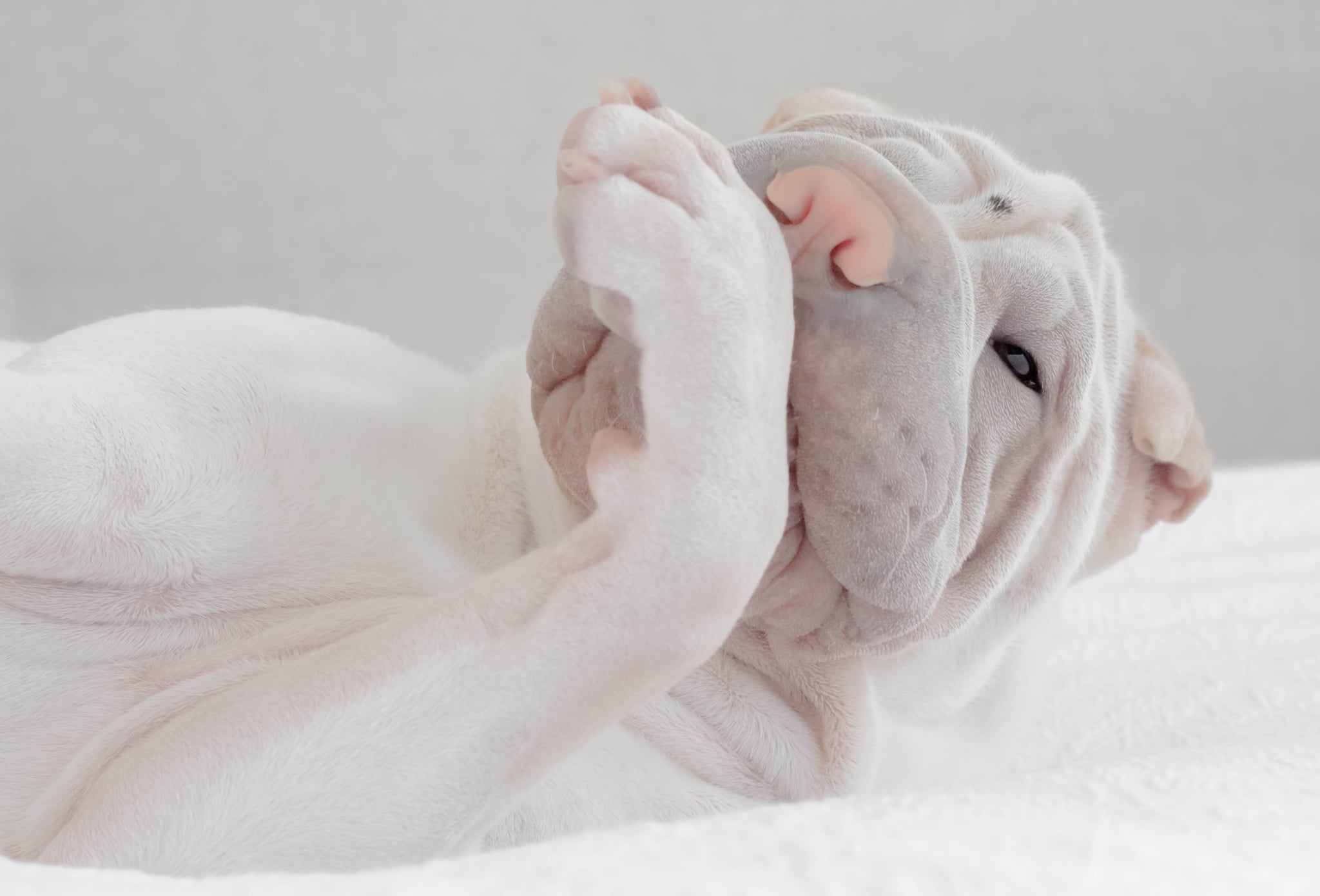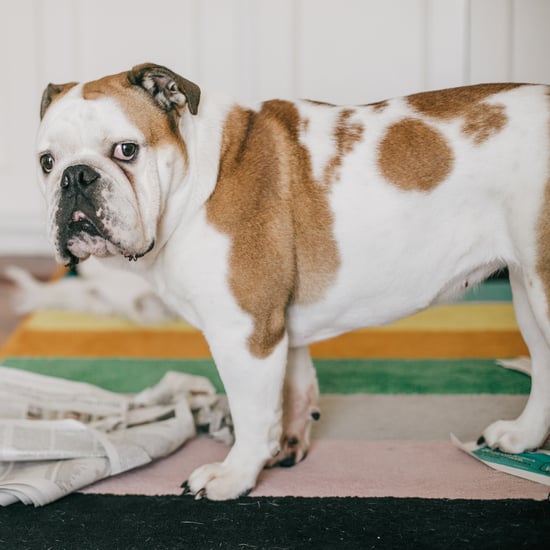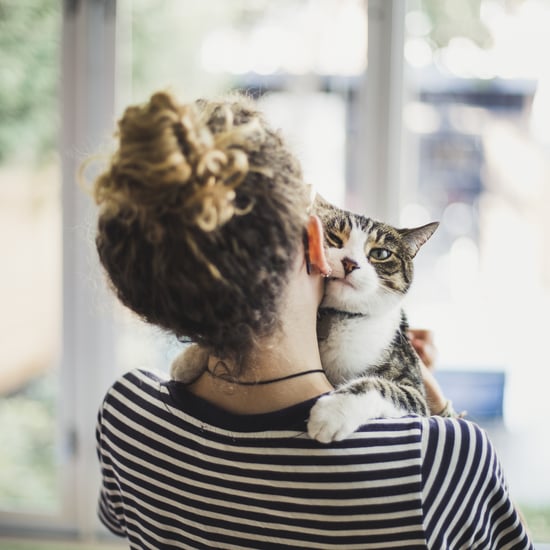Why Does My Dog Lick and Chew on His Paws?
If Your Dog Won't Stop Chewing His Paws, It Might Be Time to See a Vet

It's not always all fun and games when you're a dog owner. It's a lot of hard work to take care of them to make sure they're happy and healthy. One thing on a long list of weird things your dog might do is chewing on his paws. You might think that it annoys you to watch him do it, but we can guarantee it bothers him even more. We talked to two vets to get to the bottom of why your dog won't stop chewing on his paws, so that you and your pup can stop being annoyed with this habit.
Why Do Dogs Chew on Their Paws?
One of the most common reasons dogs lick and chew on their paws is because of allergies that cause itchiness. Dr. Sara Ochoa, DVM, told POPSUGAR, "Many dogs are allergic to different types of grasses, and when they go outside, they are getting these pollens on their feet." Allergies can be from things beyond just grass, though. Your dog could be allergic to his food, bug bites, or other environmental factors. While allergies are the most common factor, if the chewing and licking persists and you can't pinpoint an allergy, take your dog to your vet for a checkup in case it's something more serious, like an injury.
What Can You Do If Your Dog Won't Stop Chewing His Paws?
If you've chalked up the licking to allergies, your best bet to prevent further licking is to eliminate the allergy. Dr. Christine Long, DVM, head of veterinary medicine at Modern Animal, told POPSUGAR that it's hard to do this until you've figured out exactly what the allergy is. The easiest and best first thing you can do, though, is administer a flea preventative just in case. "Allergies to fleas are triggered by an initial flea infestation, so keeping your dog on a good-quality monthly flea preventive will prevent the development of a flea allergy," she said.
There are allergy tests you can get done at the vet, which will be the most effective way to detect the allergy. Dr. Ochoa also said it's important to keep your dog's paws clean and dry, especially if they're having a reaction to the grass outside. Your vet will help you determine the best course of action with getting your pup to stop chewing on his paws, and the answers could be changing his food or even taking some allergy meds. Whatever the case, persistent chewing on paws is a sign that your dog needs some help.







